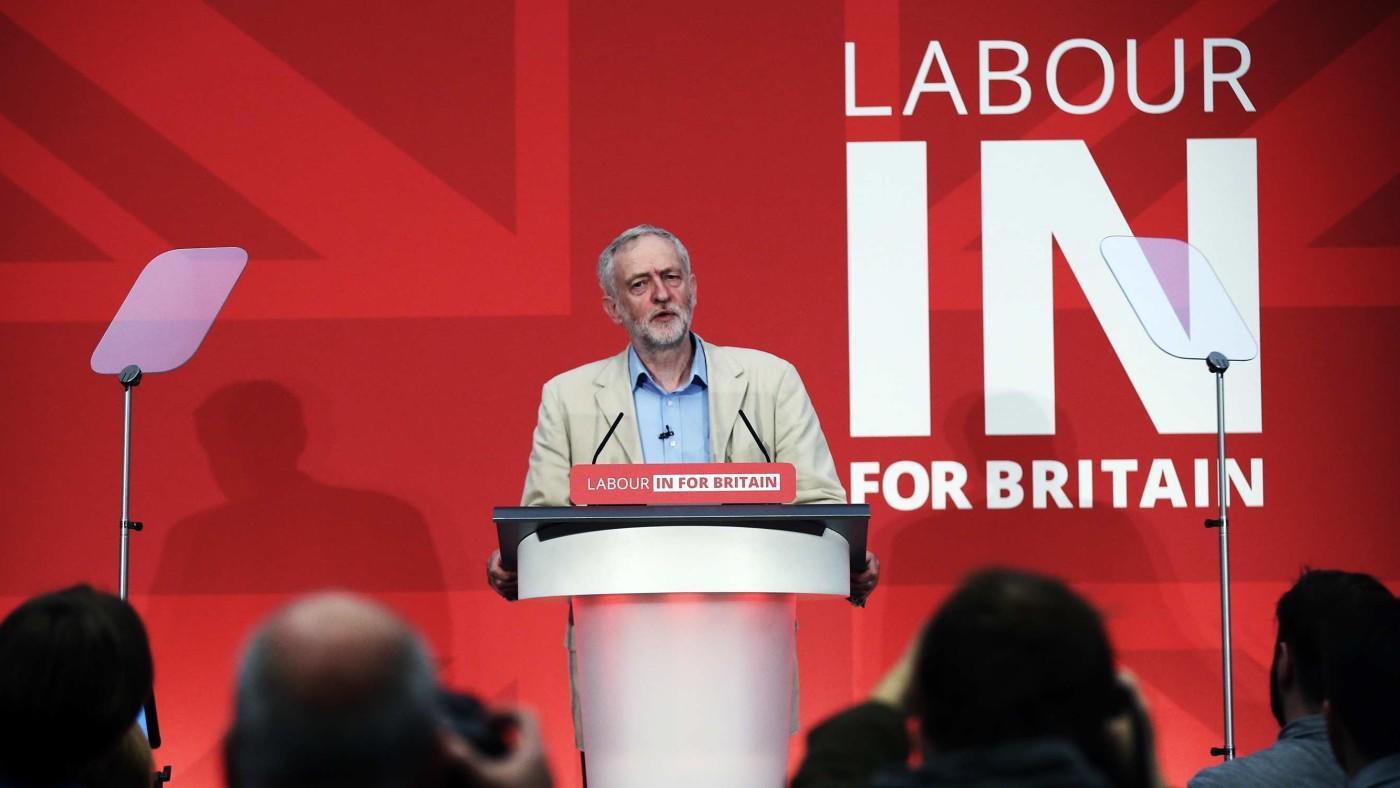We just heard, in a crowded field, the single weirdest argument in favour of Remaining in the EU of the whole campaign. It probably ought to be no surprise that that argument came from Jeremy Corbyn.
Faced with rationalising to himself the political necessity of backing Remain despite his having been against EU membership for 40 years, Corbyn appears to have undergone the following intellectual contortion. He has reasoned that, because more Conservatives favour leaving the EU than Labour voters, that means that if we leave the EU we will have more Conservative governments whereas if we remain we will have more Labour governments. Our EU membership has not worked well up to now, he concedes, but that is because we’ve had so many Conservative governments and because those Conservative governments have helped drive the EU in a pro-market direction. If we remain, we’ll have more truly socialist Labour governments which will allow us to change the EU so that it can serve the People better.
I bet you think I’m distorting his position. I genuinely don’t think I am – though his speeches are always so rambling and incoherent it’s rarely possible to be absolutely certain what he thinks he’s saying.
He definitely said that a key problem with the EU is that it is too much in favour of market liberalisation and privatisation. He definitely said that with a Labour government the UK could work together with socialists elsewhere in the EU to change the EU so that it would allow more state ownership of key assets and indeed could in the future “halt” pressure for privatisation. He definitely said that free movement of labour in the EU allows firms to exploit workers. He said that was a particular problem in Britain but only because Conservative governments had refused to fund proper training for lower-skilled workers, meaning firms brought in workers from abroad to undercut them. Indeed, he said that it was crucial to have strong workers’ rights at EU level to offset the way free movement would tend to help firms to undermine workers’ rights.
He said that unilateral efforts by the UK to combat climate change would be “worthless” unless we coordinated internationally (which is presumably news to the UK government which has argued for 20 years that unilateral action here would provide leadership that other countries would follow). (Why he imagined there would be no international coordination if the UK left the EU was not clear. Does he think Canada or Norway take no part in international efforts on climate change? But perhaps we should avoid addressing the substance of his points – simply grasping what he says is challenge enough.)
He said that if the UK left the EU there would be a bonfire of regulation and we would become much more free market. I suspect that was meant to be an argument against leaving. (If it were an argument in favour of leaving, I would probably caution that I don’t believe it’s right, but anyway…)
He also said it was vital to stay in the EU so we could fight the TTIP being negotiated between the EU and the US, which would otherwise destroy the NHS. Yes. That was really what he said. Why the option of leaving the EU so as not to be part of the TTIP wasn’t attractive, I have no idea.
He insisted so repeatedly that the problem with leaving the EU was all the terrible things Conservative governments would do if we left that a heckler eventually lost patience and asked repeatedly: “But won’t we have a Labour government?” This heckle was greeted with some mirth by Corbyn – though perhaps not for the reasons you and I are giggling at that obviously ludicrous idea.


